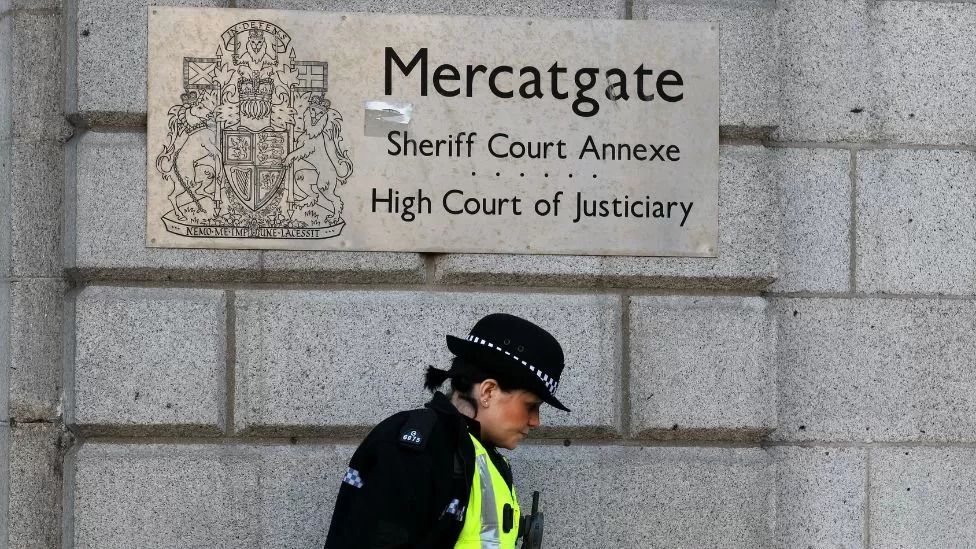
Humza Yousaf defends rape trial scheme as boycott grows
They have accused the Scottish government of a "deeply troubling attack" on the judicial system.
Lawyers in Glasgow and Edinburgh have already said they will refuse to take part in the pilot, which was proposed as part of a new justice reform bill.
The government has said there is "overwhelming evidence" juries are affected by preconceptions about rape.
The change to trials was proposed by Scotland's second most senior judge, Lady Dorrian, in a review that informed the Victims, Witnesses and Justice Reform (Scotland) Bill.
Justice Secretary Angela Constance has claimed that low conviction rates for rape and attempted rape are hampered by the "prevalence of preconceptions".
In the most recent figures, conviction rates for rape and attempted rape were 51%, compared with 91% for all other crimes.
After the Aberdeen Bar Association confirmed it was joining the boycott, Mr Yousaf said he heard their objections "loud and clear".
But he said he remained "absolutely committed" to working with legal professionals on the pilot because convictions for rape are "far too low" compared to other offences.
The first minister said: "We know through the weight of evidence that exists just how many rape myths, rape misconceptions, stereotypes exist.
"That's not in the interest of justice.
"We're talking about a time-limited pilot and I hope that legal professionals that have said they'll boycott will work with us and reconsider that boycott."
 Lawyers in Aberdeen have followed colleagues in Glasgow and Edinburgh in vowing to oppose the scheme
Lawyers in Aberdeen have followed colleagues in Glasgow and Edinburgh in vowing to oppose the scheme
The SNP leader said more than 80% of trials already took place without a jury.
Statistics for 2019-20 show 16% of criminal cases were heard by a jury, while 84% were less serious, or summary, cases which were dealt with by a justice of the peace or a sheriff.
Aberdeen Bar Association vice president Ian Woodward-Nutt told BBC Scotland it was "very hard to see how this will proceed" without lawyers agreeing to participate in the pilot.
"Criminal defence lawyers across Scotland will not allow their clients to become guinea pigs in a scheme where the starting point of the scheme is to engineer verdicts to bring about more convictions," Mr Woodward-Nutt said.
He took issue with proposals for public reviews of decisions made by trial judges taking part in the scheme.
'Deeply troubling attack'
The lawyer said: "Never before have decisions at the Scottish criminal courts been subjected to this type of review by the executive.
"So it's clear and it will be clear to any impartial observer that this proposed pilot amounts to a deeply troubling attack, both on the criminal justice system, but also on the independence of our judiciary."
Mr Woodward-Nutt argued juryless trials would lead to a loss of safeguards.
"The Scottish government are proposing an experimental scheme that replaces juries with a specific named trial judge who will, we feel inevitably, be subjected to public scrutiny and thus pressure relative to his or her decision making," he said.
"That cannot be fair, that cannot be appropriate."










